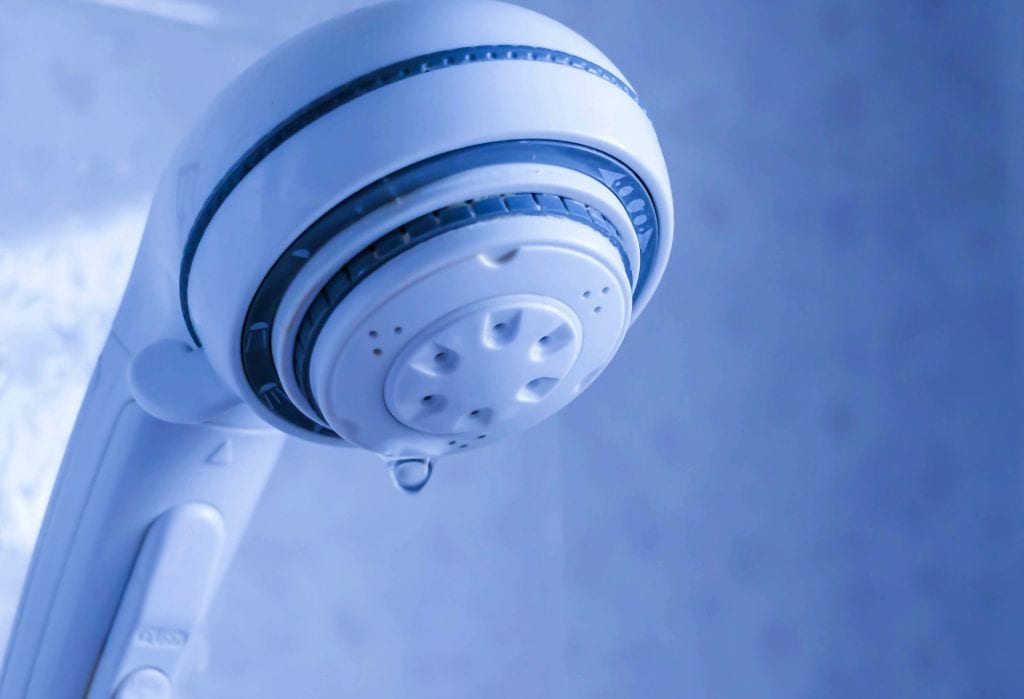
A whopping 10,000 gallons of water — that’s how much the average US home wastes every year due to leaks. Worse, one in 10 homes wastes 90 gallons a day, which translates to an annual waste of 32,850 gallons of water! That’s more than enough water that an average person in the US needs for an entire year.
Many of these leaks occur in plumbing pipes, faucets, and toilets. A water heater tank itself, as well as the lines connected to a shower, can also develop holes. Ultimately, this will lead to your shower not working properly.
Leaks are only some of the common culprits behind malfunctioning showers though. We’ll explain more of this below, as well as other reasons your shower has stopped working, so be sure to read on!
1. Leaks in the Water Tank or Supply Lines
The bigger the leaks, the more water you waste, and the higher your water bills will be.
As if that’s not enough, your water pressure and flow will also suffer. More water may be flowing out of the leaks than water making it to your shower. In this case, you’ll only see water trickling out of the showerhead or faucet, or worse, not see any water at all.
Aside from obvious leaks in showerheads and taps, the water heater tank may also be leaking. Inspect your tank for dripping water as well as the surrounding area for pooled up water. If there’s biological growth (such as mold and algae), you likely have a leaking tank.
As soon as you notice these signs, get in touch with a licensed Utah plumber ASAP.
2. A Bad Anode Rod
An anode rod protects the internal parts of tanked water heaters from corrosion. It’s a metal tube usually made of either aluminum or magnesium, screwed onto the top of the tank. Its sole use is to attract oxidizing elements that would otherwise rust the inside of the tank.
In short, the anode rod “sacrifices” itself to these corrosion-causing elements. This sacrifice then makes this metal tube last way shorter than your water heater tank. Leaving a bad anode rod inside the tank will cause the internal lining of the tank to corrode.
The longer it takes you to replace that depleted rod, the sooner your heater will fail. During this time, you’ll notice shower issues, such as foul-smelling or rust-colored water. As the heater degrades, you’re likely to have fluctuating shower water temperatures too.
New anode rods should undergo inspection after three to four years. If the anode rod has thinned down to half its original diameter, it already needs a replacement.
Note that this guideline applies only to homes with moderate water hardness though. Unfortunately, many areas in Utah, including Salt Lake City, have very hard water. On average, SLC’s water supply has a hardness rating of 13 grains per gallon.
Very hard water can corrode an anode rod faster, so you should have yours inspected at least once a year. This way, the water heater repair specialist can change it before it completely fails.
3. Clogging in Tank or Water Supply Lines
Speaking of hard water, the minerals that it contains can block your tank and supply lines. Minerals, such as calcium and magnesium, can settle at the bottom of your water heater tank. They can also accumulate on the internal surfaces of the pipes that supply water to your shower.
That said, one of the signs of hard water mineral build-up is having low water pressure in the shower. No water from the shower at all usually signals completely clogged tanks or water lines. These problems can affect not just your shower, but your other faucets too.
Licensed water heater repair technicians can clean and clear away these mineral build-ups. However, it’s best that you also consider installing a water softener at home. This will help prevent future clogs in your tank or supply lines.
Keep in mind though that once you have softer water, you’d need to have your tank’s anode rod inspected more often. Very soft water, like very hard water, can corrode anode rods faster, so it’s best to get it checked at least once a year.
4. A Faulty Shower Valve
A shower not working properly can be due to a broken shower valve or valve cartridge. Shower valves, after all, control both the flow and temperature of water in the shower.
This is the component of your shower responsible for mixing hot and cold water. It’s also the part that directs the “mixed” water to either the showerhead or the shower faucet.
If your shower won’t turn on or if you only get either hot or cold water, it likely means you have a broken valve. Faulty valves can also cause your shower handle to get stuck or make odd grinding sounds. If the valve breaks and the broken part blocks its opening, you’ll have low water flow or pressure.
A common culprit behind faulty shower valves is a broken or corroded rubber ring. The good news is, this is a cheap and easy fix, as you only need to replace the worn ring. If, however, the cartridge itself breaks, then you most likely need to replace the entire valve.
5. No Source of Heating Energy
If you’re not getting any hot water, but the water pressure is fine, you likely have no power. The source of power depends on whether you have an electric or gas water heater.
In electric water heaters, a no hot shower problem can happen due to a tripped circuit breaker or a blown fuse. If it’s the former, simply reset the breaker switch by sliding it back to the “ON” position. If it’s a blown fuse, call a water heater repair technician to have the damaged fuse replaced.
If you have a gas water heater and you’re not getting any hot water (in the shower or anywhere else), you likely ran out of gas. Check the gas tank meter to see if it’s low or empty. If there’s still gas in it, then the heater’s pilot light or burners may have gone out.
You can try reigniting the pilot light, but if it still doesn’t work, then it’s time to call a water heater technician.
A Shower Not Working Properly Can Be a Safety Hazard
As you can see, there are plenty of possible reasons behind your shower not working right like it used to. If you have a shower issue and basic troubleshooting doesn’t do the trick, call a plumber ASAP.
This is even more important if the problem is fluctuating water temperature. A shower that suddenly switches to very hot water can cause scald burns.
Don’t risk the health and safety of your household with a malfunctioning shower! Get in touch with us now so we can get to the bottom of all your shower or water heater problems.













